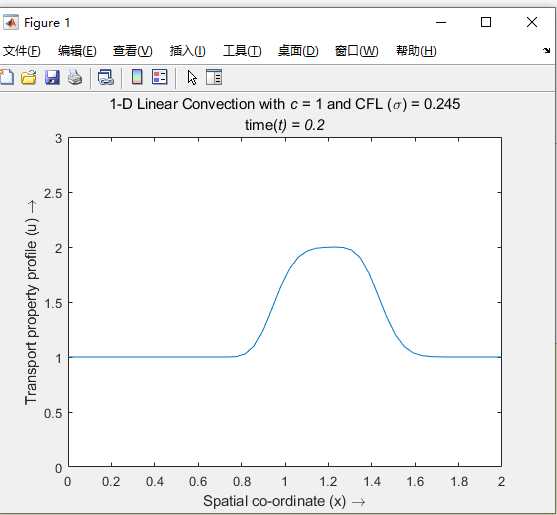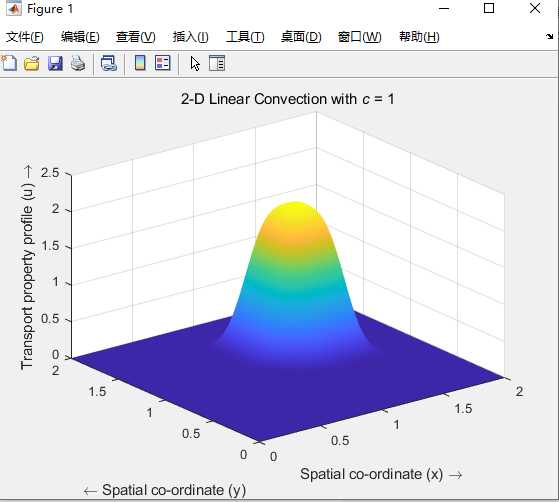% Simulation of a 1-D Linear Convection model by a time march (Finite
…Difference Method)
% Numerical scheme used is a first order upwind in both space and time
%%
%Specifying Parameters
nx=50; %Number of steps in space(x)
nt=50; %Number of time steps
dt=0.01; %Width of each time step
c=1.0; %Velocity of wave propagation
dx=2/(nx-1); %Width of space step
x=0:dx:2; %Range of x (0,2) and specifying the grid points
u=zeros(1,nx); %Preallocating u
un=zeros(1,nx); %Preallocating un
sigma=abs(c)*dt/dx; %Courant-Freidrich-Lewy number
%%
%Initial Conditions: A square wave
for i=1:nx
if ((0.75<=x(i))&&(x(i)<=1.25))
u(i)=2;
else
u(i)=1;
end
end
%%
%Evaluating velocity profile for each time step
i=2:nx-1;
for it=0:nt
un=u;
h=plot(x,u); %plotting the velocity profile
axis([0 2 0 3])
title({[‘1-D Linear Convection with {\itc} = ‘,num2str(c),’ and CFL (\sigma) = ‘,num2str(sigma)];[‘time(\itt) = ‘,num2str(dt*it)]})
xlabel(‘Spatial co-ordinate (x) \rightarrow’)
ylabel(‘Transport property profile (u) \rightarrow’)
drawnow;
refreshdata(h)
pause(0.1)
%Explicit method with F.D in time and B.D in space
u(i)=un(i)-0.5*(sign(c)+1)*((c*dt*(un(i)-un(i-1)))/dx)…
+0.5*(sign(c)-1)*((c*dt*(un(i+1)-un(i)))/dx);
end
D143
今天的文章用时间推进法模拟一维线性对流模型分享到此就结束了,感谢您的阅读,如果确实帮到您,您可以动动手指转发给其他人。
版权声明:本文内容由互联网用户自发贡献,该文观点仅代表作者本人。本站仅提供信息存储空间服务,不拥有所有权,不承担相关法律责任。如发现本站有涉嫌侵权/违法违规的内容, 请发送邮件至 举报,一经查实,本站将立刻删除。
如需转载请保留出处:https://bianchenghao.cn/33223.html


